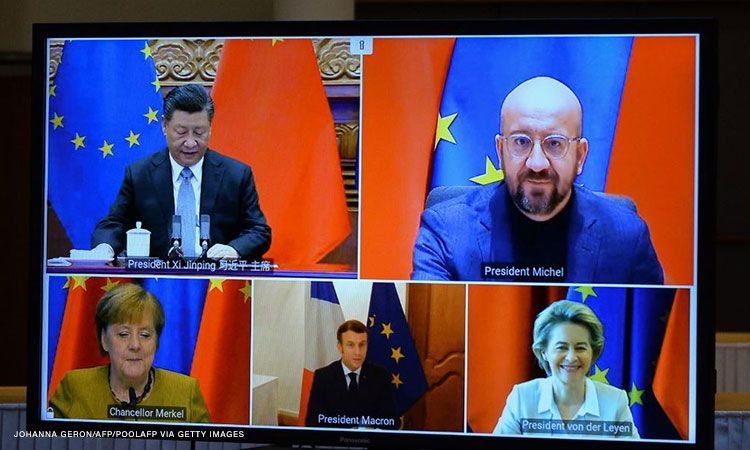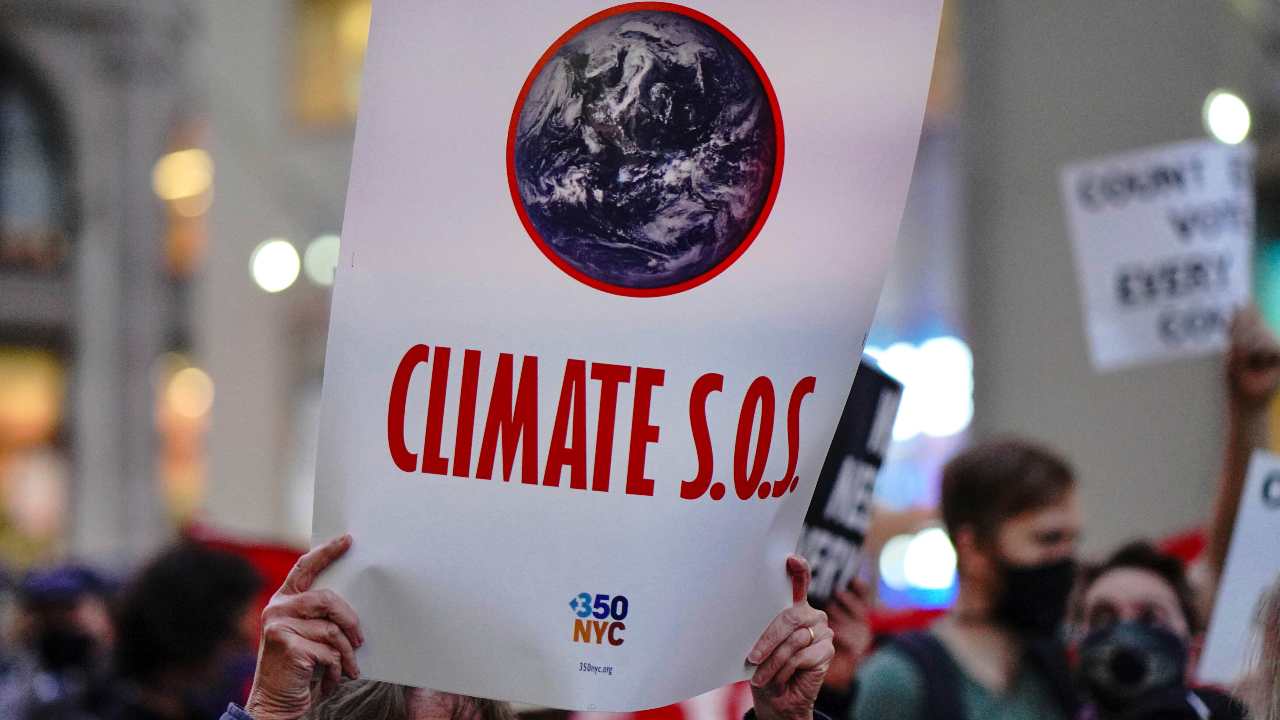The Current State of Climate Collaboration: Not Technology Alone, but Global Governance Can Lead to Climate Success
April 29, 2021
About the author:
Thorsten Jelinek, Senior Fellow of Taihe Institute and Director of Taihe Institute European Center.
(source: Unsplash)
The existing global structure has reached its limitations failing to provide sufficient inclusive and sustainable growth. The emphasis on national or regional sovereignty and self-identity has been the primary response towards the disruptions that the previous phase of globalization has caused. The disrupting forces have been global, while responses, which seek to repair the destabilizing fractures that have cut across all domains of life, have been informed by the local values, specific history and political system of each respective economic bloc and country. The different types of responses towards capitalist globalization coupled with the shift from an unipolar to a multipolar global structure have led to big power rivalry mainly between the U.S. and China.
However, despite the tensions among the global powers—with their attempts of regaining sovereignty and strengthening their national identity—there is positive momentum for global collaboration on climate change. The European Union, China, Japan, Korea and the United Kingdom have made unilateral commitments, and the United States has returned to the Paris negotiation table and already made its own ambitious climate pledge prior to the Global Leaders’ Climate Summit on Earth Day.
(source: BBC)
By 2030, the U.S. wants to reduce emissions by 50%, as based on 2005 levels; achieve a carbon-neutral electricity system by 2035 and become net-zero by 2050. China has reiterated its commitment to peak before 2030 and become carbon neutral by 2060. Europe wants to become climate neutral by 2050 and reduce 50% of its emissions by 2030, as compared to 1990 levels. Climate and sustainability standards being increasingly mainstreamed in industrial policies and international trade and investment agreements provides the potential of breaking the deadlock of the UNFCCC Conference of the Parties (COP).
(source: CNN)
Both the EU–UK withdrawal agreement and the EU–China Comprehensive Agreement on Investment (CAI) include provisions or uphold common standards in the areas of climate change and green investment. In addition, the People’s Bank of China has committed to collaborate with the EU on establishing a common green taxonomy, which provides common definitions required to effectively reorient capital flows toward a more sustainable economy, while maintaining the financial system’s stability. The EU Taxonomy Regulation as well as the Sustainable Finance Disclosure Regulation (SFDR), which requires the disclosure of any negative environmental and social impacts of investments, are deemed the most significant development to date in financing sustainable growth. China also seeks to positively impact and drive the global agenda on climate change with the Belt and Road Initiative (BRI) International Green Development Coalition and the Green Investment Principle. The Chinese government has also increased its efforts to standardize and introduce environmental, social, and governance (ESG) disclosure rules.
Such progress has the potential to be translated into templates used to reform the World Trade Organization (WTO), accelerate the energy transition, and support a more rapid transition to an economy aligned with the Paris Agreement and the United Nations’ Sustainable Development Goals (SDGs). The upcoming meetings still in 2021, including the global climate conference in Glasgow (COP26), the Convention on Biological Diversity in Kunming (COP15), and the G20 Summit in Rome, provide governments with the opportunity to leverage the current momentum and agree upon common mechanisms, measures, regulations, and standards to speed up the transition to climate neutrality and environmental sustainability.
The current moment might anticipate an emerging economic model, based on which sustainability could become the most rational choice. However, while climate goals and measures are increasingly converging across the major regions, there are still diverging domestic priorities and possibilities. In particular, China and the U.S. remain critical towards and perceive the EU’s proposed carbon border tax as protectionist, while the EU emphasizes that European companies should not be put at a disadvantage over the bloc’s climate targets. All sides agree to further mainstream environmental principles in policies and economic agreements, to address market distortions, and to make investment and investment decisions. However, disagreement remains over introducing widespread carbon border adjustment mechanisms, emission trading systems, and a global carbon or greenhouse gas (GHG) tax regime.
Although a strict climate action regime could endanger China’s transition from a middle-income to a high-income economy, the U.S. remains entangled in its market-foundationalist values opposing more fundamental changes, and Europe’s status as an export-led economy more easily justifies relatively stricter regulations. While the EU and China are leading the transitions toward carbon neutrality, the U.S., despite its ambitious goals, still must catch up with the EU and China, but can inspire Canada and Australia to become more ambitious. Both countries, Canada and Australia, also have a significant carbon footprint and are lagging further behind in relative terms.
(source: CGTN)
Already in 1988, James Hansen, director of NASA's Institute for Space Studies, testified in front of the U.S. Congress that the greenhouse effect was detected and that it was changing the climate. Nevertheless, structural and psychological inertia has kept humanity on a failing trajectory. The linear economy has been based on excessive fossil fuels use, and nothing is more tied to energy use than economic activity. Thus, despite the recent progress, the deeply seated structures, maintained through national, political, and economic interests, and that clearly risk hampering more radical progress aren’t surprising. Decoupling economic development from fossil fuels, environmental pollution, and waste generation, ultimately alters the mode of development and the very fabrics of modern civilization. In addition, great power rivalry, protectionism, geopolitical tensions, fierce competition, post-pandemic recovery, and currency conflicts, as well as social tension and populism all risk perpetuating the fragmentation of the climate action regime and therefore global collaboration.
Some philosophers provide another more fundamental explanation that accounts for both the prolonged climate inaction and, paradoxically, the recent push toward climate action, which is humanity’s changing understanding of itself in relation to nature and to science and technology, respectively. Humanity, certainly in the West with its monothetic legacy, positioned itself at the “ontological” and “moral center” of the universe, as a “protagonist” with an urge to subordinate and control nature. With the emergence of modern sciences, humanity witnessed three blows against such anthropocentrism and human centeredness. Firstly, the Copernican Revolution proved the world was not the center of the universe (15th century). Secondly, Charles Darwin’s theory of evolution (1859) conveyed humanity was not “God’s favored creation,” but a result of “fortunate accidents.” Thirdly, the rise of psychology, and notably Sigmund Freud (1865), revealed that “we humans are not even the master of our own psyche.” Baruch Spinoza (1632) already anticipated the latter revelation when he emphasized that forces beyond our control determine our individual human being.
Paradoxically, while humanity’s identity became decentered, modern science and technology, which is a human artefact, moved to the center stage. Techno-science has been the primary force of modernization and made possible the industrial revolutions. Thus, its application is responsible for polluting the atmosphere and degrading the biosphere. Over the past forty years, the slowly emerging political will to act against climate change has been accompanied by an over-reliance on technology as the primary solution to climate change. Such potentially dangerous over-reliance on technology is signified by the emphasis on “climate neutrality” or “carbon zero,” and thus on the focus of carbon capture and storage; plant-based and geological carbon sinks; overshoot scenarios through geoengineering; and models to calculate how investments and technology could change carbon or GHG emissions. Such a technocratic approach has determined climate policy, which yet has largely failed and merely led to incremental regulation changes. Although the Paris Agreement (2015) signified a breakthrough in terms of global political willingness to fight climate change, the prolonged reliance on carbon reduction and geoengineering technologies might have turned the Paris Agreement into an “unfeasible political victory.” In other words, the reliance on technology has prevented politics from making more profound changes early on.
Now, the recent push towards climate action is grounded in the collective awareness and probably fear about not only our individual human finitude, but also the impotence and insignificance of human beings in the greater context of nature. Humanity is capable of destroying nature, but not simply reverse the destruction and thus simply control nature. Such revelation appears as the “final assault” against anthropocentrism, which still might last decades for it to materialize. Scientists argue that the 1.5 °C goal is not feasible, but that humanity should rather prepare for 3 °C that could be reached by the end of this century.
(source: CGTN)
Climate change, the global pandemic as well as the post-humanist scenarios related to the potential impact of artificial intelligence are all connected in the sense of humanity’s overreliance on technology, but the awareness that technology alone won’t resolve those global challenges. Instead, global political will is needed. Climate success is a matter of global governance, which is the possibility and necessity of global collaboration. There is no time for great power rivalry. Governance mechanisms are necessary that emphasize commonalities, but respect differences and the joint will to overcome those difference over time. Governments need to develop technological solutions as much as elaborate solutions to technological barriers and unintended reverse effects of optimizations. Governments also need jointly to elaborate solutions to non-technological factors to overcome the governance gaps and mitigate negative impacts on the environment, economy, and society. Last but not least, more immediate and sustained cuts to GHG emissions might become inevitable, but those cuts must be done in socially just ways.
—————————————————————
ON TIMES WE FOCUS.
Should you have any questions, please contact us at public@taiheglobal.org




